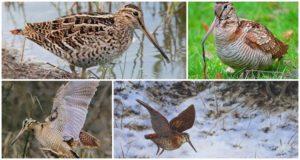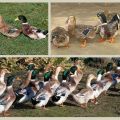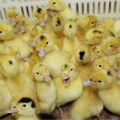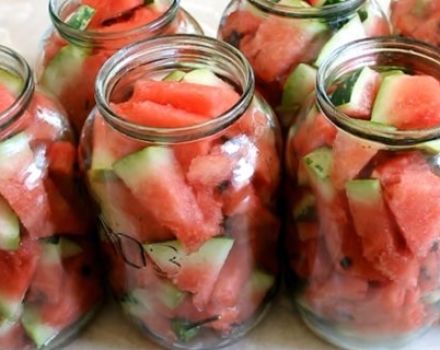Will the duck accept someone else's brood and will the ducklings survive without the mother who abandoned them?
Duck meat is extraordinarily tender and aromatic. Ducks are unpretentious in food and care. Unlike chickens, ducklings have a low mortality rate. These reasons are enough to recommend even novice poultry breeders to grow these cute birds in communication. Ducks rarely lay eggs. Therefore, many owners buy ducklings in addition to their brood in an incubator or at a bazaar. The question becomes urgent: will the duck accept other people's ducklings at home as its own?
Will a wild duck accept someone else's duckling?
The main motive for the actions of animals is physical necessity, ensuring the survival of their own and their offspring.
Ducks lifestyle in nature
All types of ducks nest on the ground. Arrange a warm place so that it is easier to warm the eggs for 26-31 days. They build a nest from grass and their own fluff, sometimes at first digging a small hole in the ground. The female lays up to 12 eggs in April-May. Ducklings hatch wet due to the remnants of their developmental environment and should dry out under the mother's belly for about 3 hours. From the very beginning, babies can walk and swim.
Living next to a pond or swamp, the chicks, along with the duck, constantly swim and dive, getting their own food. After water procedures, they tend to dry out as soon as possible, each time using their mother's warmth. And the duck, after all, also cooled down in the water, despite the salutary lubrication of its fat from the gland at the base of the tail.
Stranger children
Ducks often live in colonies. If a duck has very few eggs, a more fertile female can throw her into her nest. Babies hold on to mom for less than 2 months. When a duck feels that it is having difficulty warming its brood, it drives away other people's ducklings. If few chicks were born or some of them died, little ducklings can be adopted into the family.
Can mom leave her ducklings?
In poultry, natural instincts are weakened or impaired. And the duck can suddenly get out of the nest. Therefore, expectant mothers need to be looked after. If the farm has several brooding ducks, the question "What to do?" does not arise. The abandoned eggs are quickly distributed between them.
A brood hen can also help out. After birth, the ducklings will have to be kept separately. If the babies hatched safely under the duck, she will not abandon them, but will carefully teach them to eat different food, thoroughly rinsing it in water. If the bird is allowed into the river, it will teach you how to dive.
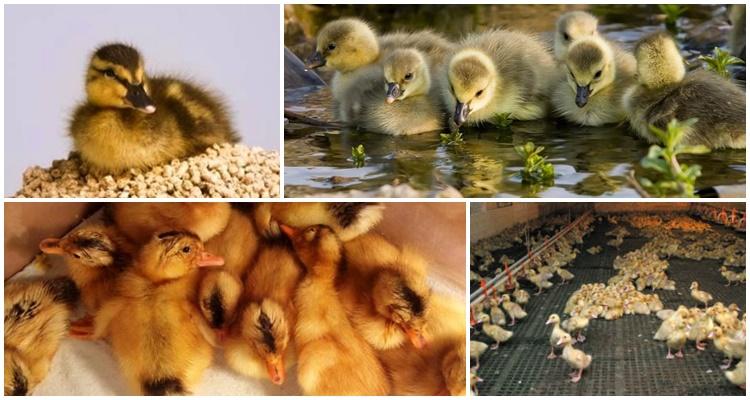
Can ducklings survive without a duck?
With mom, chicks are more comfortable and calmer. But raising ducklings is not difficult even without an adult bird watching over them. All care will be provided by a person.
For this, the first 2 weeks of babies are kept in a cardboard box at a temperature of 26-28 ° C.
Feeding
At the first feeding, ducklings need to be attracted to food. Usually the first portion of at least several newborns is forced into the beak. Then they tap a finger near the food to get the babies' attention. The chicks who have tasted the food begin to set an example for others. Feed composition:
- boiled buckwheat or millet porridge;
- chopped greens;
- chopped boiled egg.
Lost appetite or weak ducklings, which are repelled by comrades from food, are force-fed until they get stronger.
The first week of feeding is repeated every 2 hours. In the second week - after 3 hours. Then, until the end of the first month, they are fed 4 times a day. From the second month, they are transferred to hard food, serving it 3-4 times a day.
Adapting to an independent life
If the ducklings are lively and look healthy, by the end of the first week of life in sunny weather they are taken outside in a box. They first sunbathe for 20 minutes. Next time - 30. The duration of the walk is increased throughout the second week. In no case should babies be hypothermic: some will die, many will get sick. From the 3rd week, if it was possible to harden, the ducklings are released to the ground, they are allowed to splash water from small jars.
In the wild, ducklings fly well 1.5-2 months after birth. Poultry also feels confident at this age.



